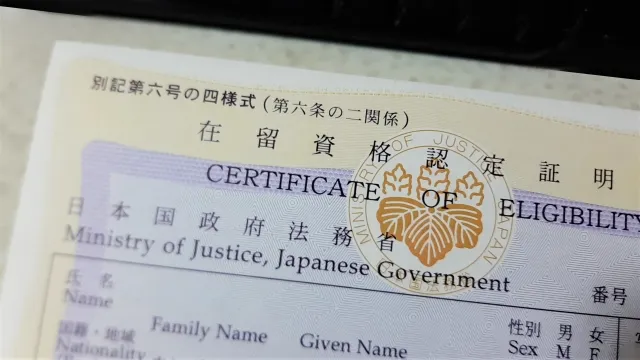Jobs and occupations available with "Technical/Humanities/International Services" status of residence and conditions for obtaining them

The "Technical/Humanities/International Services" visa status, which is a typical work visa, was created by integrating the "Humanities/International Services" and "Technology" visa statuses following the 2014 revision of the Immigration Control Act. In response to the increasing need for companies to meet the multifaceted needs of their work in hiring highly skilled foreign personnel in specialized and technical fields, the distinction between "Humanities/International Services" for liberal arts majors and "Technology" for science majors was abolished and "Technology/Humanities/International Services" was established as a new comprehensive status of residence. The "Technical/Humanities/International Services" category was established as a new comprehensive status of residence.
In this issue, we will explain the background of the integration of the "Humanities/International Services" and "Technology" residence statuses due to the amendment of the law, as well as the current duties and requirements for the "Technology/Humanities/International Services" residence status.
▼Goandup Picks Click here for recommended articles!
- Required before studying abroad! Goandup Nihongo+, an online Japanese language learning service
- This page introduces services for foreigners who wish to study in Japan or improve their Japanese language skills to learn Japanese online.
- Goandup Salon" community for foreigners living in Japan
- We introduce an online community where foreigners living in Japan can exchange information and interact with each other to support their life in Japan.
- Goandup Study" supports foreigners who want to study in Japan.
- This section introduces study abroad support services that provide comprehensive support to foreigners who wish to study in Japan, from preparation for study abroad to living in Japan.
- Where can I buy a prepaid SIM in Japan? Recommended SIM cards for foreigners are also introduced.
- How to purchase a prepaid SIM and suitable SIM cards for foreigners.
- The Complete Guide to Pocket Wi-Fi in Japan for Foreigners!
- We introduce how to select and recommend pocket Wi-Fi products that can be used conveniently in Japan.
- The Complete Guide to Finding a Job in Japan! Finding a job, changing jobs, and part-time work for foreigners
- This site provides foreigners who want to work in Japan with comprehensive information on how to find a job, recommended job sites, and other information necessary to find a job.
What is status of residence in the first place?

A status of residence is a status that allows a foreigner to engage in activities within the scope of his/her authorized activities after receiving landing permission at the port of entry/departure and entering Japan. There are different types of statuses depending on the permitted activities in Japan, and those other than "Temporary Visitor" status can obtain a resident card and can live in Japan.
A work visa, as it is commonly referred to, falls under the status of residence "Technical/Humanities/International Services" or "Technical" and allows a foreigner to work for a Japanese company and stay in Japan to engage in activities within the scope of the visa's authorization. In order to obtain a work visa, it is necessary to properly understand the various conditions, laws and regulations, and to make an accurate and strategic application.
Difference between status of residence and work visa
While a visa is a status (visa) required for entry into Japan (examination), a status of residence is a status that allows a foreign national to enter Japan after receiving landing permission at a port of entry/departure and to stay in Japan and engage in activities within the authorized scope. In other words, it can be said that a visa is a qualification for entry into Japan, while a status of residence is a qualification that defines the scope of activities in Japan after entry.
The "Technical/Humanities/International Services" visa status, which is a typical work visa, was created by integrating the "Humanities/International Services" and "Technology" visa statuses following the 2014 revision of the Immigration Control Act. In response to the increasing need for companies to meet the multifaceted needs of their work in hiring highly skilled foreign personnel in specialized and technical fields, the distinction between "Humanities/International Services" for liberal arts majors and "Technology" for science majors was abolished and "Technology/Humanities/International Services" was established as a new comprehensive status of residence. The "Technical/Humanities/International Services" category was established as a new comprehensive status of residence.
Background of the integration of the "Specialist in Humanities/International Services" and "Engineer" statuses

Even before the 2014 amendment to the Immigration Control and Refugee Recognition Act, the employment of high-level foreign personnel required education or work experience related to technology or knowledge as a criterion for landing permission, and it was necessary to prove the relevance of the education or work experience to the nature of the work to be performed.
It is well known that educational programs at universities and other educational institutions are generally divided into arts and sciences, but in determining the relevance of the above, the examination was divided into the categories of "humanities and international services" and "technology".
However, in reality, it is not uncommon for humanities-related positions to be reassigned to science-related positions, and it is becoming increasingly difficult to clearly classify the duties into "humanities/international services" and "technical" positions. The reason for this is that it has become difficult to clearly distinguish between "humanities international services" and "engineering".
Thus, in order to respond to the diversification of employment needs of companies and the complex nature of work, the two statuses of residence were combined to create the new status of residence "Technical/Humanities/International Services. Under this status of residence, it is now possible to more flexibly accept foreign personnel with a high level of expertise, without distinction between humanities and sciences.
Jobs and occupations available with the status of residence "Specialist in Humanities/International Services

The status of residence "Specialist in Humanities/International Services" allows foreign nationals to work in a wide range of occupations, including the following
- Accounting
- Human Resources & General Affairs
- judicial affairs
- Interpretation and translation
- language instruction
- Public Relations and Advertising
- Overseas trading operations
- design
- product development
- software development
There are a wide variety of positions that allow for the utilization of specialized knowledge in the humanities and abilities related to international business. There are cases where foreigners who graduated from the economics or business administration departments are engaged in "overseas trading operations," and foreigners who majored in Japanese at university are engaged in interpreting and translating.
It is also possible for a foreigner who graduated from a university majoring in a subject in the field of humanities to engage in computer software development work that requires knowledge in the field of humanities. It should be noted that it is possible to apply for the status of residence "Specialist in Humanities/International Services" even if your major at university was not in a science-related subject.
Jobs and occupations available with "Technical" status of residence

The status of residence "Engineer", which is established for employing foreign professional engineers from typical science fields such as natural science, allows them to engage in the following types of work.
- systems engineer
- programmer
- Designer and developer of civil engineering and construction equipment, etc.
- Professional Engineers in Aerospace Engineering
- Specialized technicians in other science fields
The "Technology" visa allows foreign nationals to work in occupations that require a high level of expertise in the science field, such as IT-related jobs, various engineering jobs, and research and development jobs, which play an important role in supporting Japan's industrial development.
Especially in recent years, the shortage of IT engineers has become more serious, and the need to hire highly skilled foreign engineers is increasing. The status of residence of "Engineer" has become one of the important statuses of residence to meet the human resource needs of such companies.
The main occupations are those that can make use of specialized knowledge and skills in the field of science, and foreign personnel who support the development of Japanese industry and technological innovation are active under the status of residence "technology".
Three conditions for applying for "Technical/Humanities/International Services" status of residence

When applying for the status of residence "Technical/Humanities/International Services", it must be confirmed that all of the following three requirements are met.
(1) Applicability of status of residence
The first thing to check when considering the acceptance or employment of a foreigner is "whether or not there is a status of residence applicable to the activity you intend to engage in. This is stipulated in Article 7, Paragraph 1, Item 2 of the Immigration Control and Refugee Recognition Act, and the content of activities permitted under each status of residence (i.e., applicability of status of residence) is stipulated in the attached tables (1 and 2) of the Immigration Control Act.
It is necessary to carefully determine whether the activity in which the applicant intends to engage falls under the status of residence "Engineer/Humanities/International Services. If the applicability is unclear, there is a risk that the application will be denied.
Reference: E-GOV Law Search
(2) Conformance to standards
(1) "Criteria compliance" refers to whether or not a foreign national who is considered eligible for the status of residence of "Engineer/Humanities/International Services" meets the criteria to apply for and obtain permission for the status of residence. The foreigner must have acquired the necessary knowledge in order to perform the work in which he/she is engaged. Conformity to the standard is examined from two perspectives: educational background requirements and job requirements.
(1) Academic background requirements
Either a university degree or equivalent or higher education, or completion of a special training course at a Japanese special training college is required. In the case of a university graduate, a bachelor's degree is required, and in the case of a special training college, the title of "Senmon-senmongakushi" or "Koudenshoku-senmongakushi" is required. Professional training school graduates are examined more strictly than university graduates in terms of the relevance of their school major to their job duties.
(2) Job Requirements
In the case of "Technical/Humanities," the applicant must have at least 10 years of work experience related to the work in which he/she is engaged. This work experience includes the period during which the applicant majored in a subject related to the relevant technology or knowledge at a university, college of technology, post-secondary education school, or special training college.
On the other hand, for "international business," the applicant must have at least three years of work experience in the business (translation/interpretation, language instruction, public relations, advertising, or overseas trade business, clothing or interior design, product development, etc.) in which he/she intends to engage. However, university graduates are not required to have work experience if they are engaged in translation, interpretation, or language instruction.
Reference:Clarification of the status of residence of "Engineer/Humanities/International Services", etc.て
(3) Suitability
In order to stay in Japan under the status of "Technical/Humanities/International Services," you must have reasonable grounds to believe that your stay in Japan is appropriate. This is stipulated in Article 20 (Change of Status of Residence) and Article 21 (Extension of Period of Stay) of the Immigration Law.
In determining reasonableness, the status of the foreigner's stay, the necessity of the stay, and reasonableness will be comprehensively considered. It is important that the applicant's purpose of stay and the content of his/her activities are appropriate, rather than merely meeting formal requirements.
It is important to meet the above three requirements when applying for the status of residence "Engineer/Humanities/International Services". The immigration authorities will make a comprehensive evaluation of the applicant's educational background, employment history, purpose of stay, etc., and if the immigration authorities deem it appropriate, the applicant will be granted permission to stay.
Serious employment support to help you realize your dream of working in Japan!

Do you want to work in Japan?
Let us "Goandup" make that dream a reality!
【 Program Features 】
✅ JLPT N3 level Japanese language acquisition
✅ Thorough preparation for the specific skills test
✅ Full support for job hunting in Japan
Business-focused one-on-one lessons will help you find a job in Japan in the shortest possible time.
【 Program Menu 】
- Individual Japanese language lessons
- Intensive curriculum to obtain N3, especially specialized lessons for business Japanese that can be used at work.
- Intensive curriculum to obtain N3, especially specialized lessons for business Japanese that can be used at work.
- Preparation for the Specific Skills Test
- Customized materials for specific skill tests will be used to focus on frequently asked questions and learning to pass the test.
- Customized materials for specific skill tests will be used to focus on frequently asked questions and learning to pass the test.
- Resume and CV support
- To create resumes and CVs tailored to Japanese corporate culture, and to brush up on self-promotion and motivation for application.
- To create resumes and CVs tailored to Japanese corporate culture, and to brush up on self-promotion and motivation for application.
- Interview Preparation
- Guidance on areas for improvement through mock interviews and feedback based on corporate interview scenarios. Learn interview etiquette and behavior unique to Japan.
- Guidance on areas for improvement through mock interviews and feedback based on corporate interview scenarios. Learn interview etiquette and behavior unique to Japan.
- career consulting
- Provide introductions to companies that match the participant's career goals, select companies to apply to, and provide advice on the level of knowledge required by the companies to which the participant is applying.
- Provide introductions to companies that match the participant's career goals, select companies to apply to, and provide advice on the level of knowledge required by the companies to which the participant is applying.
- Chat Support
- In addition to one-on-one individual lessons, we also accept casual questions via DM (visa application, living support, assistance in finding a room, etc.).
If you are serious about your career in Japan, join us now!
▶︎ for more informationclick here.
We will do our best to support your success in Japan!
summary
In this article, we have explained what a status of residence is in the first place, the jobs and occupations that can be done with the "Technical/Humanities/International Services" status of residence, and the conditions for obtaining this status.
In order to obtain the status of residence "Technical/Humanities/International Services," or the so-called work visa, it is necessary to properly understand the various conditions, laws and regulations as explained in this article, and to make a precise and strategic application to avoid being denied.
We hope this article will be of help to all foreigners seeking to obtain the status of residence "Engineer/Humanities/International Services". Please also refer to the following articles for more detailed information on status of residence.
・What is a residence card? How to obtain it, what it contains, the obligation to carry it with you, and how to reissue it if you lose it.
・ Japanese Permanent Residency and Naturalization Process! From difficulty and countermeasures to success points
Your support will help us!
Thank you for visiting Goandup Picks. Our mission is to provide you with more useful information to show the world what Japan has to offer.
Your support will help us to further enhance our activities, so please support us!






